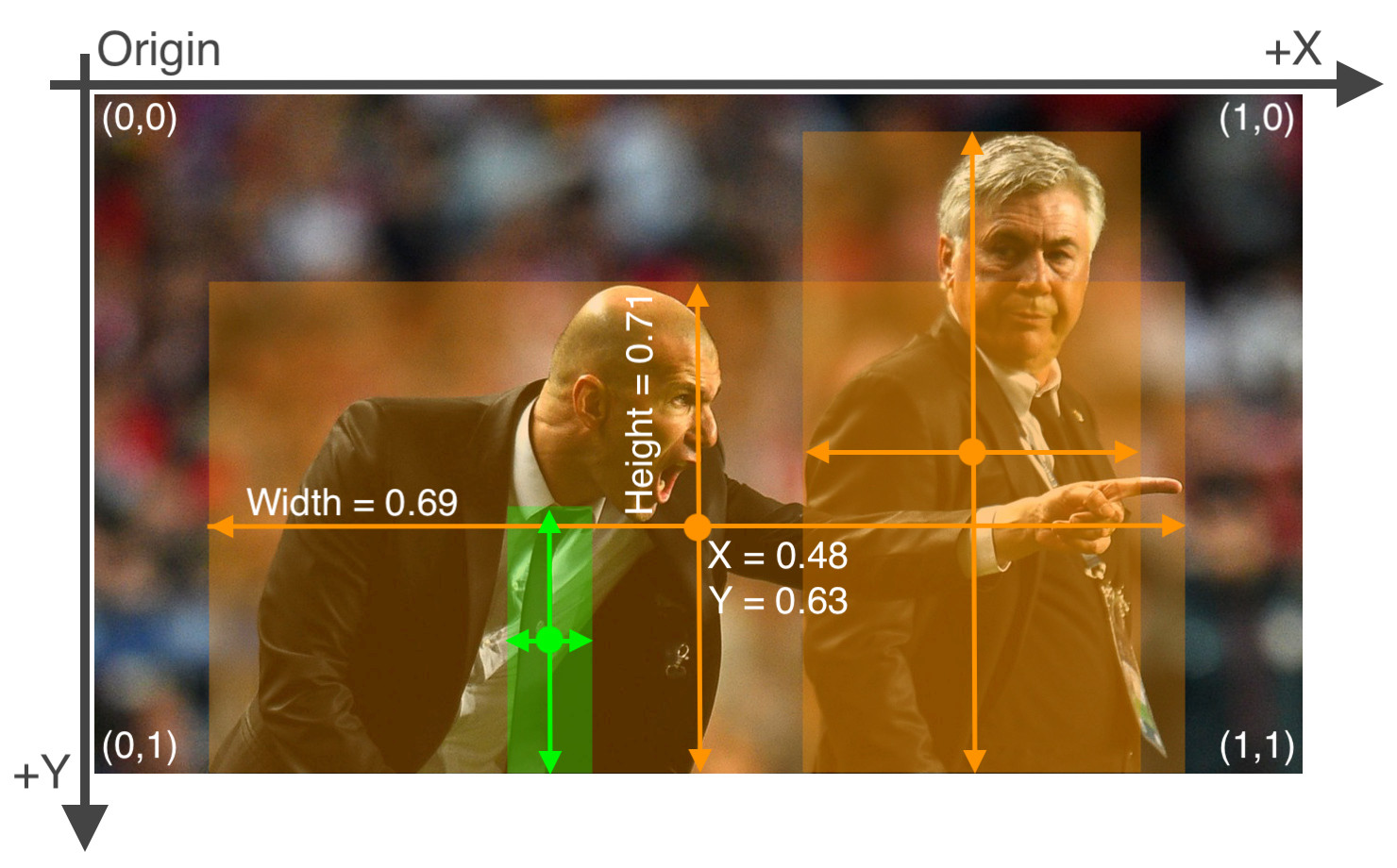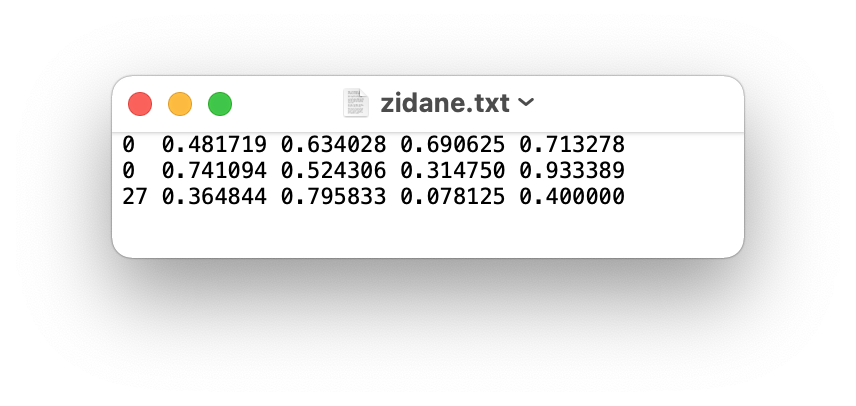-
-
Notifications
You must be signed in to change notification settings - Fork 16.3k
New issue
Have a question about this project? Sign up for a free GitHub account to open an issue and contact its maintainers and the community.
By clicking “Sign up for GitHub”, you agree to our terms of service and privacy statement. We’ll occasionally send you account related emails.
Already on GitHub? Sign in to your account
Google Vision to Yolo format #6043
Comments
|
👋 Hello @epiccucumber15, thank you for your interest in YOLOv5 🚀! Please visit our ⭐️ Tutorials to get started, where you can find quickstart guides for simple tasks like Custom Data Training all the way to advanced concepts like Hyperparameter Evolution. If this is a 🐛 Bug Report, please provide screenshots and minimum viable code to reproduce your issue, otherwise we can not help you. If this is a custom training ❓ Question, please provide as much information as possible, including dataset images, training logs, screenshots, and a public link to online W&B logging if available. For business inquiries or professional support requests please visit https://ultralytics.com or email Glenn Jocher at glenn.jocher@ultralytics.com. RequirementsPython>=3.6.0 with all requirements.txt installed including PyTorch>=1.7. To get started: $ git clone https://github.com/ultralytics/yolov5
$ cd yolov5
$ pip install -r requirements.txtEnvironmentsYOLOv5 may be run in any of the following up-to-date verified environments (with all dependencies including CUDA/CUDNN, Python and PyTorch preinstalled):
StatusIf this badge is green, all YOLOv5 GitHub Actions Continuous Integration (CI) tests are currently passing. CI tests verify correct operation of YOLOv5 training (train.py), validation (val.py), inference (detect.py) and export (export.py) on MacOS, Windows, and Ubuntu every 24 hours and on every commit. |
|
@epiccucumber15 see YOLOv5 Train Custom Data tutorial for dataset format directions: 1.2 Create LabelsAfter using a tool like Roboflow Annotate to label your images, export your labels to YOLO format, with one
The label file corresponding to the above image contains 2 persons (class YOLOv5 Tutorials
Good luck 🍀 and let us know if you have any other questions! |
|
How would I convert the normalizedVertices object to Yolo format? |




Search before asking
Question
Hi, Firstly, I want to thank you for such a great project. I'm trying to convert a Google Vision's
OBJECT_LOCALIZATIONresponse to Yolo format which is<object-class> <x> <y> <width> <height>The response looks like this:
I already know what the
object-classis but I'm lost on the rest. Any help is appreciated.Additional
No response
The text was updated successfully, but these errors were encountered: